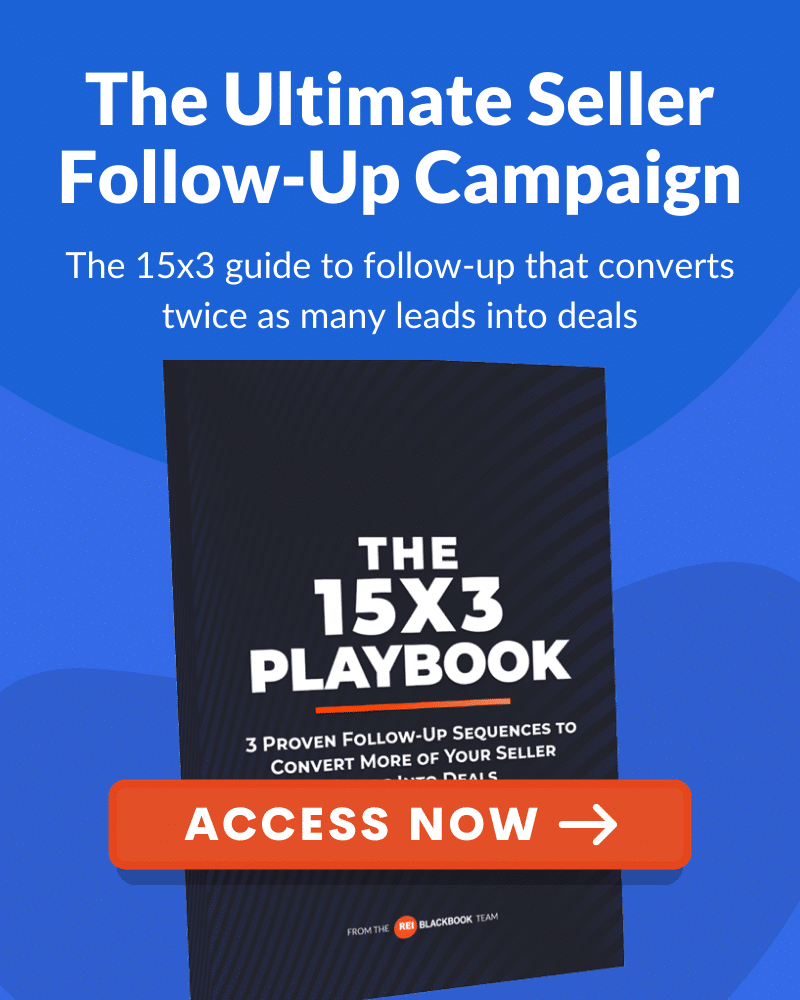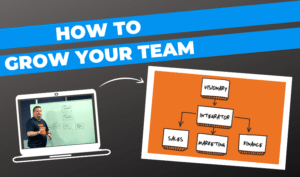Landing Page vs. Website: How Are They Different?
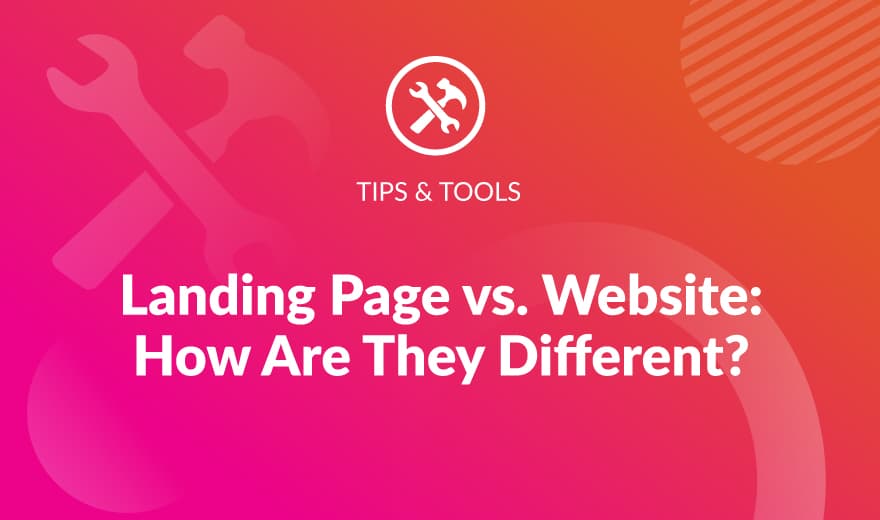
As a business owner, you've probably spent a lot of time and effort working on your website for your business.
You've envisioned what you wanted it to look like, then took those visions and implemented them to create a great first impression for people who visit your website.
From the homepage to the contact us page, you have made sure every single detail is just right.
After all, you created the website to help build up your online presence, and have the ability to capture more leads.
After spending all this time creating the perfect website, there are multiple pages that explain what your business is, who you are, and the services/products your business offers, you think you're done. You can check having a website off your list of things to do.
But then you hear about landing pages…
You're told landing pages help convert visitors into customers, so you start questioning if you should have created a landing page instead.
The truth is, both your website and a landing page are both intended to help convert visitors into customers, but your website will be your entire first impression online, and a landing page is just a part of the first impression.
Both are important to make the first impression lasting, but there will be scenarios where your website will be more effective than a landing page, and vice versa. In this post we'll cover when you should be using each one to optimize the benefit each one offers.
Before we can dive into that you first need to understand what the difference is between a landing page and a website.
What's The Difference Between a Landing Page and a Website?
Let's start with defining what a landing page is.
A landing page is a standalone page focused on getting visitors to take action. They typically have a very specific offer, and addresses a very specific audience. Often times there is not navigation to other pages on your website. The goal of a landing page is to provide a distraction-free environment, so you can convert more visitors to leads.
Landing pages are usually created with the purpose of being used in marketing campaigns like paid advertising, emails, or social media campaigns.
You may create a landing page to recruit Property Finders, like the one below, if that's a strategy you are using in your business.
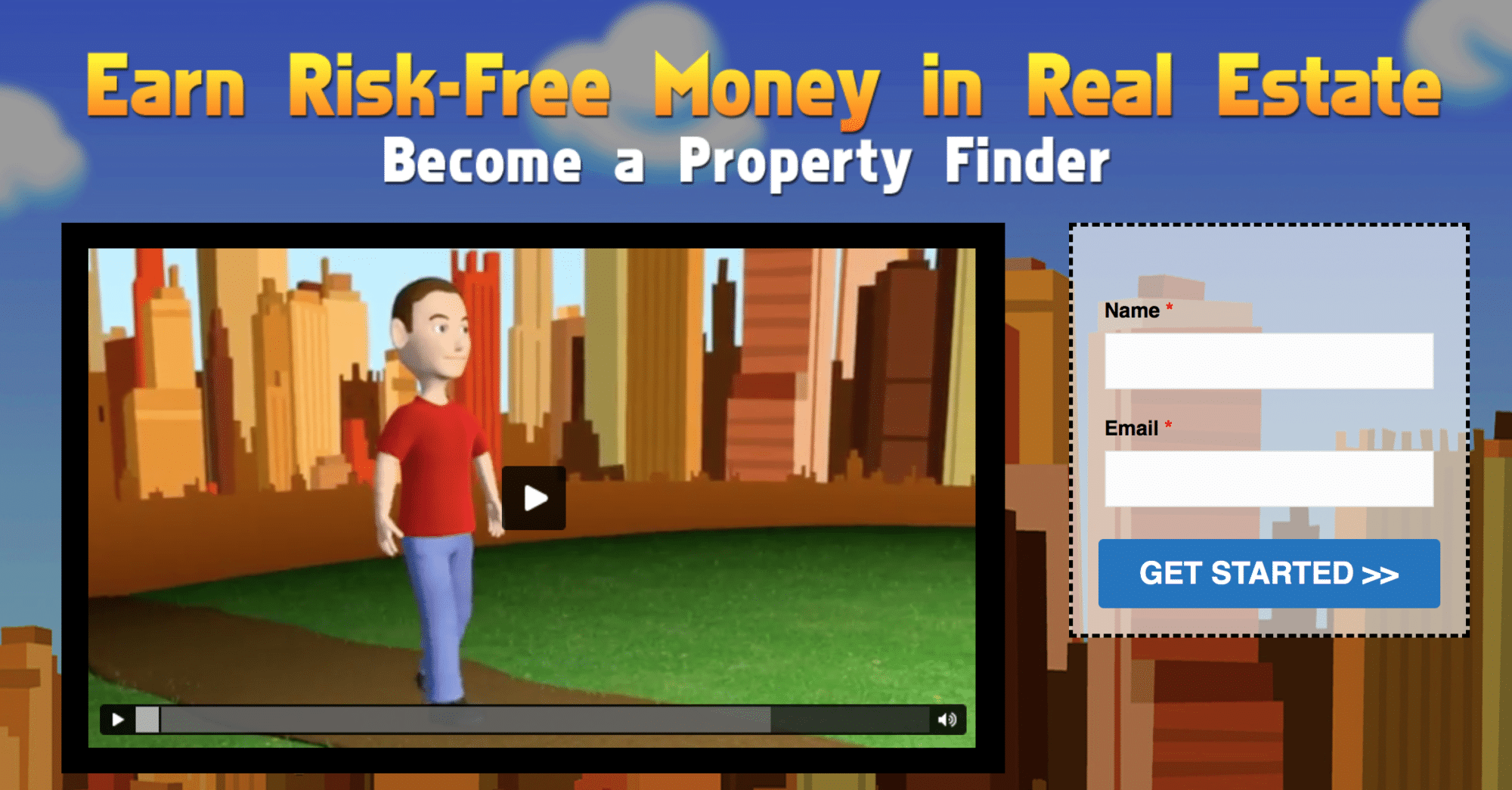
Or if you're using Google Ads to generate motivated seller leads you will need a landing page to drive leads to explaining what your business does and how you can help those leads.
REI BlackBook makes it easy to quickly create a landing page you can use through the templates offered. The templates are customizable, so you have the ability to tailor them for the specific offer you have for visitors. The landing page below was created using a template in REI BlackBook.
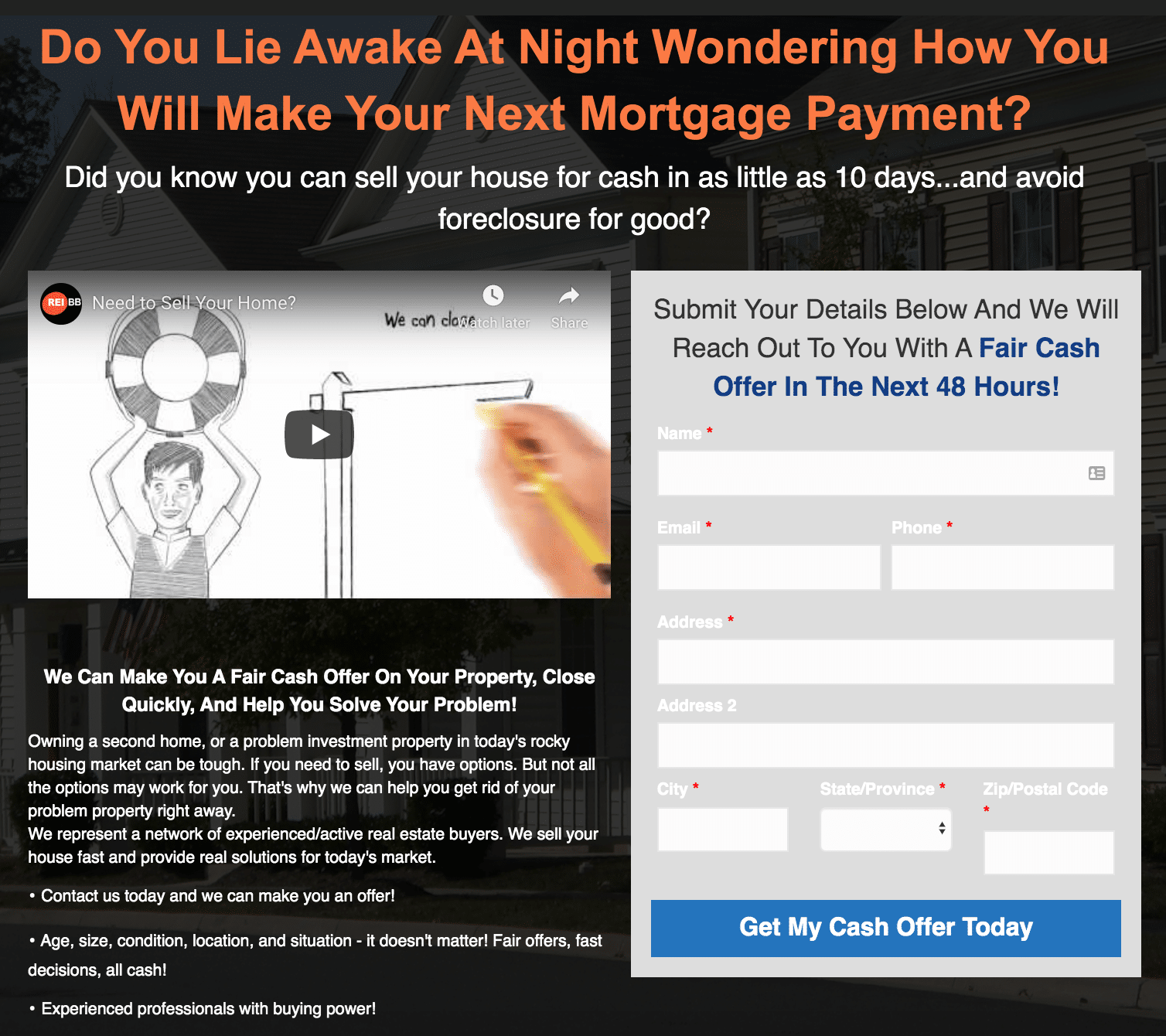
Next, we'll define what a website it.
According to Merriam-Webster dictionary the actual definition of a website is as follows, a group of World Wide Web pages usually containing hyperlinks to each other and made available online by an individual, company, educational institution, government, or organization.
So, your website will consist of several interconnected pages that include all the details of your business. Typically a website will explain what your business is, what your business does, and the products/services offered by your business.
When visitors go to your website they will land on your homepage. The homepage should give an overview of your company, build trust with visitors, and provide the next step you want a visitor to take. Your homepage should include navigation to the other pages of your website as well. Some of the other pages may include pages like a blog, testimonial page, a detailed about us page, or a contact page. The goal of a website is to describe your business to visitors, so you'll want content that does that.
If the thought of building a website makes you cringe you don't have to worry.
REI BlackBook offers multiple website templates you can use, and customize fairly easily for your business. Set up is easy, and only takes a few minutes.
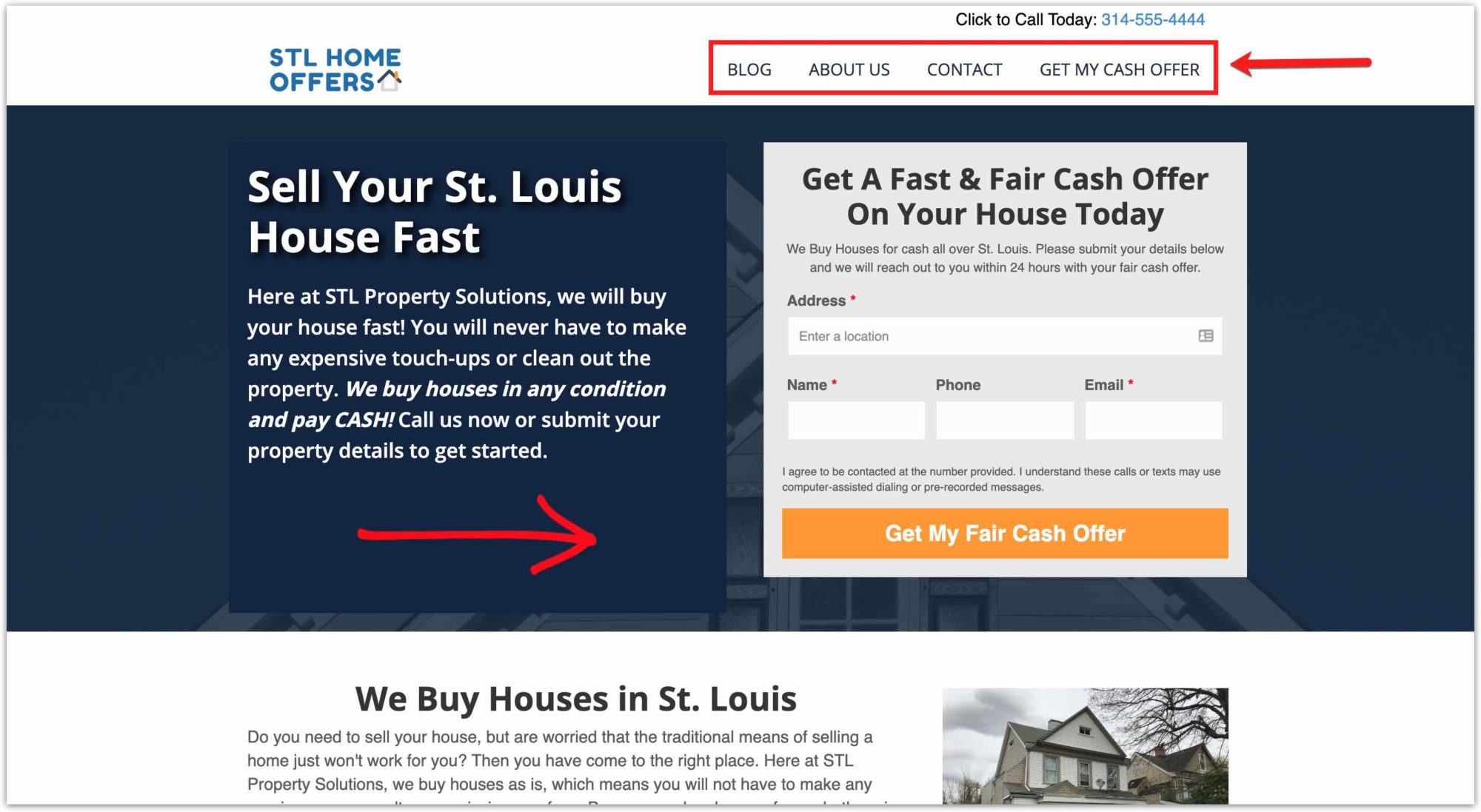
Now that we've covered the differences between a landing page and a website, let's move on to when to use each one.
When Should You Use A Landing Page?
As mentioned earlier, a landing page is typically used in marketing campaigns when you are trying to sell a very specific product or service. Landing pages are best used in the following situations:
- Running a Marketing Campaign – Since landing pages offer minimal distractions, your marketing campaign will convert much better when a visitor lands on a page that aligns with your marketing campaign goal. A landing page gives you the opportunity to explain why they should sign up, shows visitors the specific product/service your pushing works through testimonials, and has a clear action to gather their information without muddling things with the other products/services your business offers.
- Lead Magnets – A lead magnet is an incentive you can offer to potential customers in exchange for their information. This could be offering a check list to selling a home, or a free report about a specific neighborhood you're investing in. The goal of the lead magnet is to get a visitor to give you their information, and in return they receive what incentive you're offering. Again, designing your landing page to align with the incentive will help to convert more visitors into leads.
- Grab Attention – Landing pages typically don't have navigation buttons or links to other pages, or other distractions on the page, so they keep a visitor's focus and attention better than a website does. When a visitor ends up on a landing page, they'll either complete the offer on the page or go back to the search results. Those are the only two options they have.
- Attracting Different Customers – Your ideal customer may change throughout the life of your business. Especially in real estate investing if you're working in more than one niche. So, while your website will pretty much always stay the same, and cater to the masses, landing pages are a great way to segment different customers based on the needs of your business, or the different types of real estate niches you're working in.
When Should You Use A Website?
In certain cases, a landing page will be more effective than your website will be in converting visitors to leads, but that doesn't mean you don't need a website. Your website serves as your overall first impression and explains what your business does. A website will better fit in the following cases:
- Explaining Your Business – Through the various pages (About Us, Contact Us, etc.) you have the chance to explain what your business is and what it's about. When writing the content about your business you'll want to think about common questions someone might have about your business. You want your website to answer those questions for someone who is visiting it.
- Describing The Products/Services Offered – As a real estate investor there are going to be terms that visitors won't know, or processes they won't be familiar with, so visitors may not even know exactly what they need, or what services are available to them. Especially if your target audience is a distressed seller they may be easily overwhelmed, so your website is a great place to show everything you offer in detail, and encourage a visitor to learn more about the product/service. You'll want to keep in mind that the purpose of your website is to be informative and helpful, not to sell anything to visitors. The landing page is where you'll sell a product/service. You should still include a call to action or way for visitors to connect with you on your website though. You don't want to miss out on a lead because they have no way to reach out to you.
- Relating to Customers – Your website is the place for you to showcase your business culture, mission, and values. The design and content you place on your website should create an appearance that ideal customers connect to because they'll resonate with what they see and read on your website.
A landing page and website both have their purpose and times when one works better than the other, but it's important to use both.
One doesn't replace the other, and it all comes down to focus.
Are you selling a specific product/service? If so, it's probably best to use a landing page.
Are you trying to provide information about your business? If you answered yes, then your website is going to work better.
Knowing the difference and when to use each one will help you in your marketing efforts, and converting more visitors into leads.
What You Should Do Now:
- Get started with REI Blackbook for FREE: Get 14 days FREE access to our software and start converting more leads into deals.
- If you'd like to learn the exact strategies our power users are implementing to generate motivated seller leads consistently, check out our Motivated Seller Guide.
- If you'd like to learn how our team can build out your REI Blackbook system FOR you, head to our implementation page.
- If you know another real estate investor who'd enjoy reading this page, share it with them via email, Linkedin, Twitter or Facebook.
Recent Blog Posts
Get Started with REI BlackBook Today
Get started today and get 14 days free access
Without REI BlackBook we would not have gotten as far as we have as fast as we have. It is an invaluable swiss army knife for our business.
Andy Wright
Mountain Shamrock Properties

